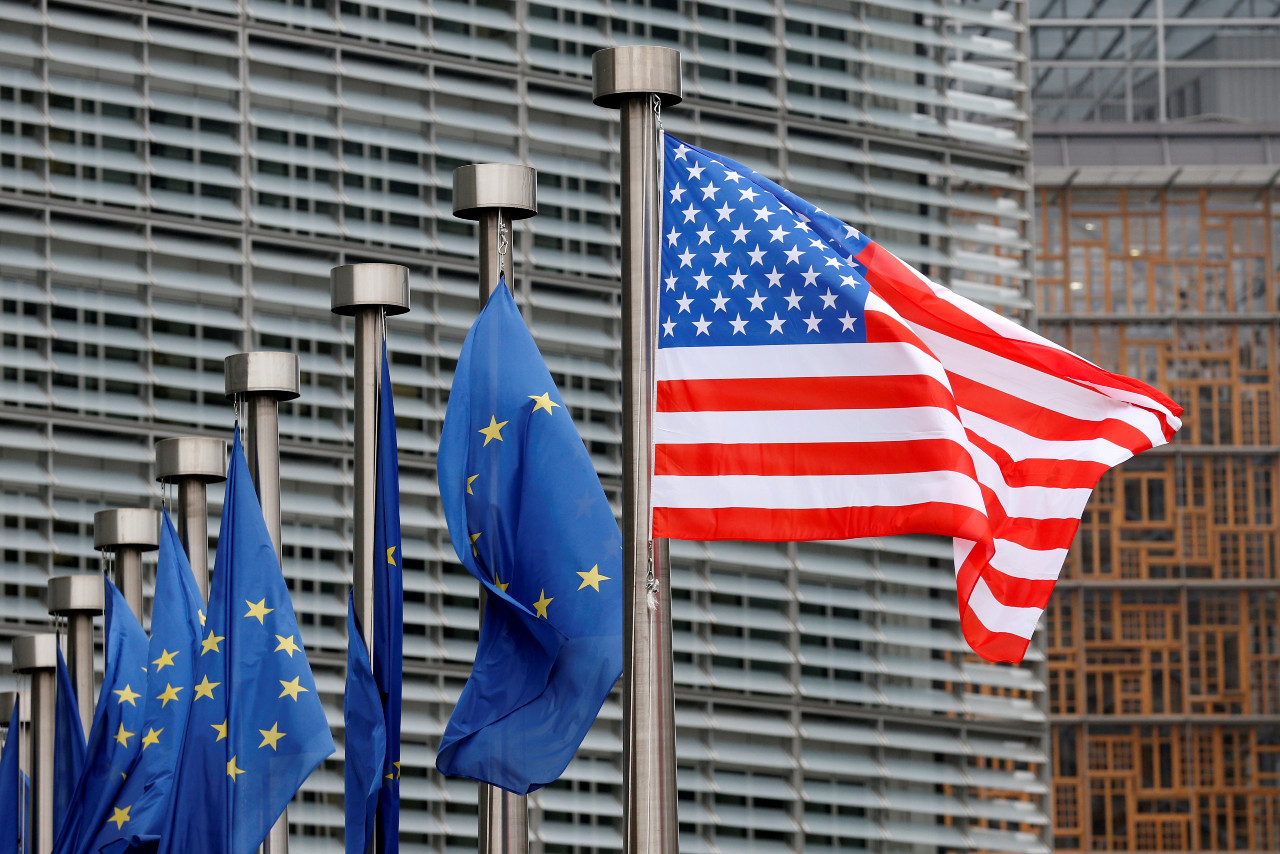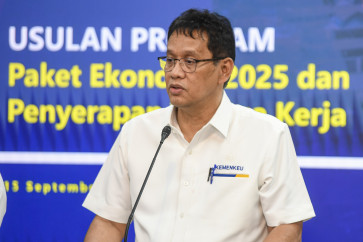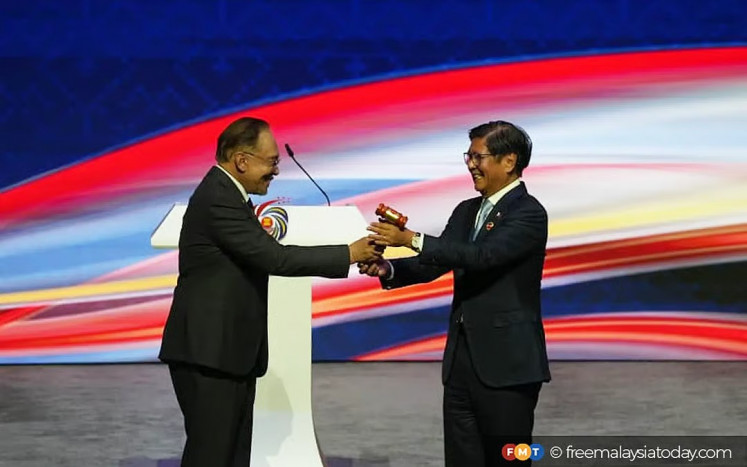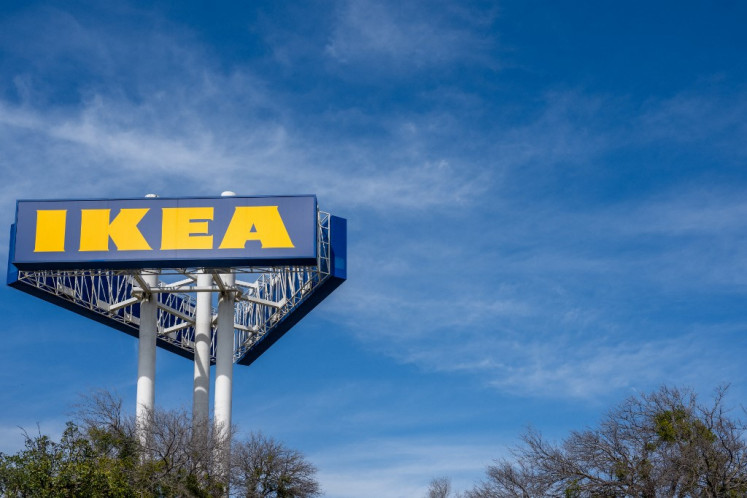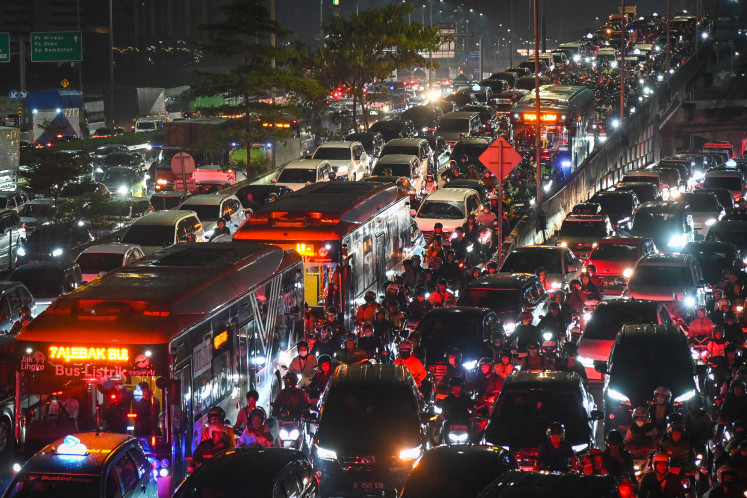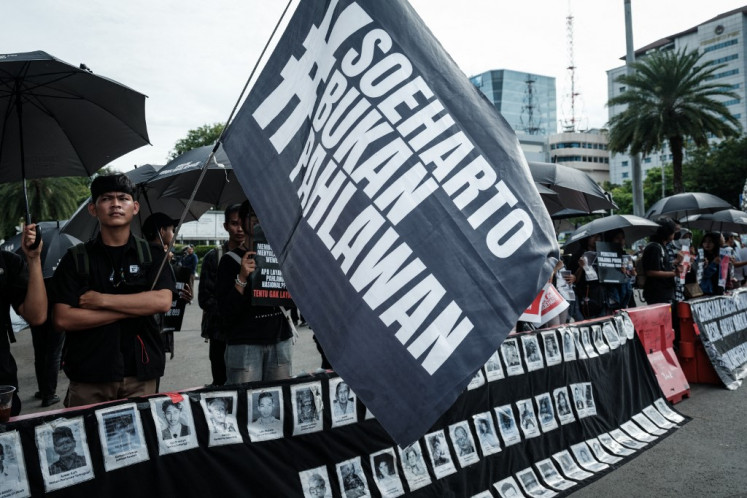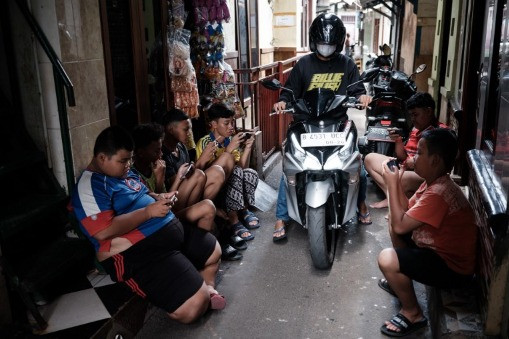Popular Reads
Top Results
Can't find what you're looking for?
View all search resultsPopular Reads
Top Results
Can't find what you're looking for?
View all search resultsUS urges EU to delay anti-deforestation law
Change text size
Gift Premium Articles
to Anyone
T
he United States has called on the European Union to delay a ban on imports of products driving deforestation, saying it would harm American producers unable to comply, the European Commission said Thursday.
The EU law, set to take effect at the end of December, will bar a vast range of goods -- from coffee to cocoa, soy, timber, palm oil, cattle, printing paper and rubber -- if produced using land that was deforested after December 2020.
The US call adds to concerns voiced by South American, Asian and African countries, and from within the EU itself, about the administrative burden the new law places on farmers and the forestry sector.
The EU is the second-biggest market for consumption of the targeted products after China.
Firms importing the merchandise in question to the 27-nation EU will be responsible for tracking up their supply chains to prove goods did not originate from deforested zones, relying on geolocation and satellite data.
According to the Financial Times, US Commerce Secretary Gina Raimondo, Agriculture Secretary Tom Vilsack and Trade Representative Katherine Tai wrote to the European Commission in late May to request a delay.
They argued that the law, adopted in late 2022, posed "critical challenges" for US producers, and asked for implementation to be postponed "until these substantial challenges have been addressed."
"We can confirm the receipt of the letter and, as always, we will reply in due course," a commission spokesman told AFP.
"We are working actively in close collaboration with all stakeholders to prepare its entry into effect," he said.
"The Commission keeps the situation under constant review and is working hard to ensure that all the conditions are met for smooth implementation," the spokesman added.
The EU's environment commissioner Virginijus Sinkevicius in March visited Paraguay, Bolivia and Ecuador to address criticisms of the new law.
The bloc has offered technical and financial help for importers to get their tracing systems up to the needed level, responding to complaints that the EU changes will be costly for smaller farms in particular.
The following month Sinkevicius also visited Ivory Coast, the world's leading cocoa producer, to address similar concerns there.
Within the EU itself, the agriculture ministers of around 20 member states -- led by Austria and Finland -- warned in April about the law creating new bureaucratic hurdles for the farm sector, at the risk of harming investment and distorting competition.
Under the law, exporting countries considered high-risk would have at least nine percent of products sent to the EU subjected to checks, with the proportion falling for lower-risk ones.
As it stands, for want of an agreed classification system, the EU will consider all countries as "standard risk" as of the end of December -- triggering checks on three percent of imports.
EU imports are responsible for 16 percent of global deforestation, according to WWF data.

